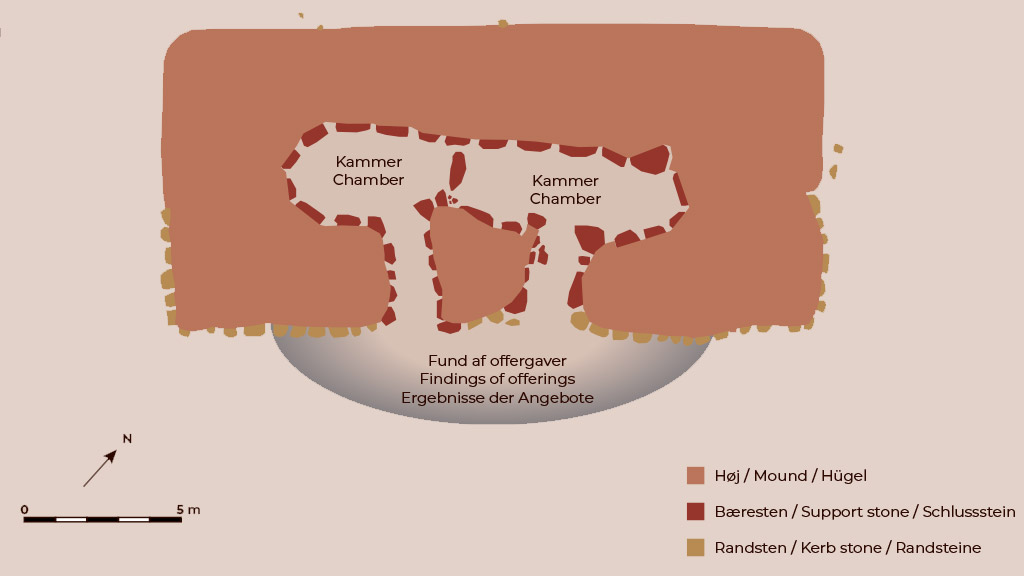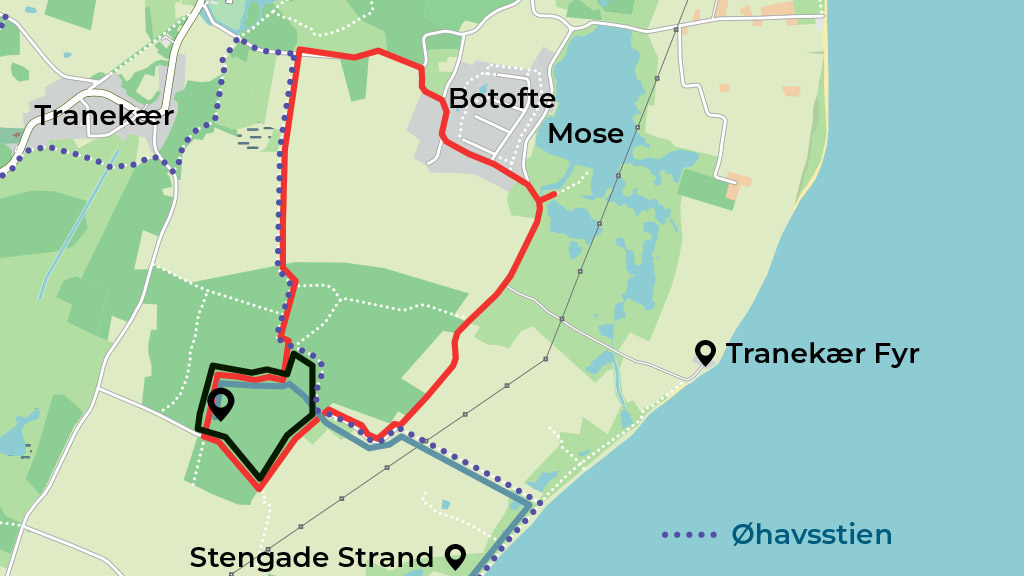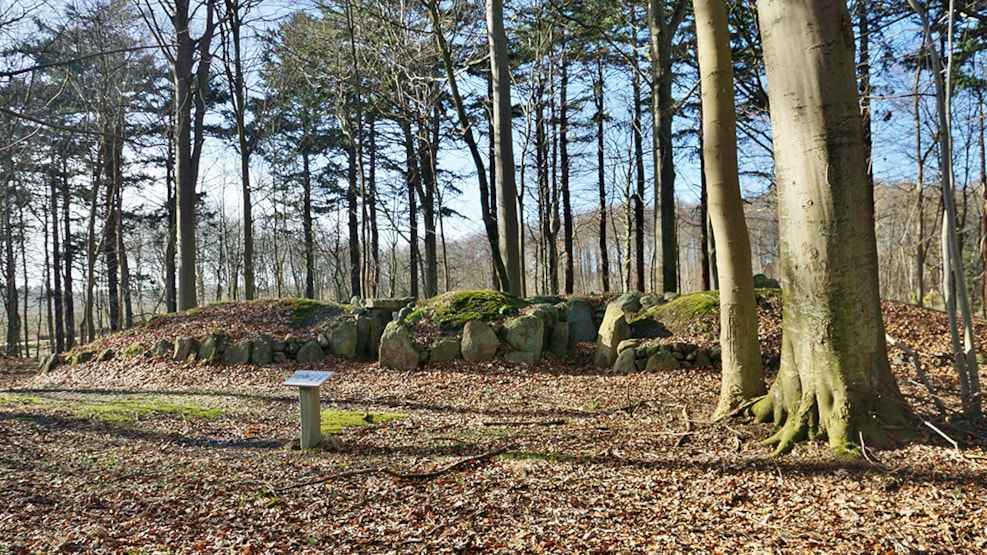
Double passage grave in Tvede Forest
One of Denmark's 29 relatively rare Neolithic double passage graves
The passage grave here in Tvede Forest is a double passage grave, which is relatively rare. The passage grave in Tvede Forest was first investigated in 1877. The excavator, Henry Petersen from the National Museum of Denmark, found several pottery and flint artefacts.
Contrary to today’s practice, these were given to Tranekær Castle.
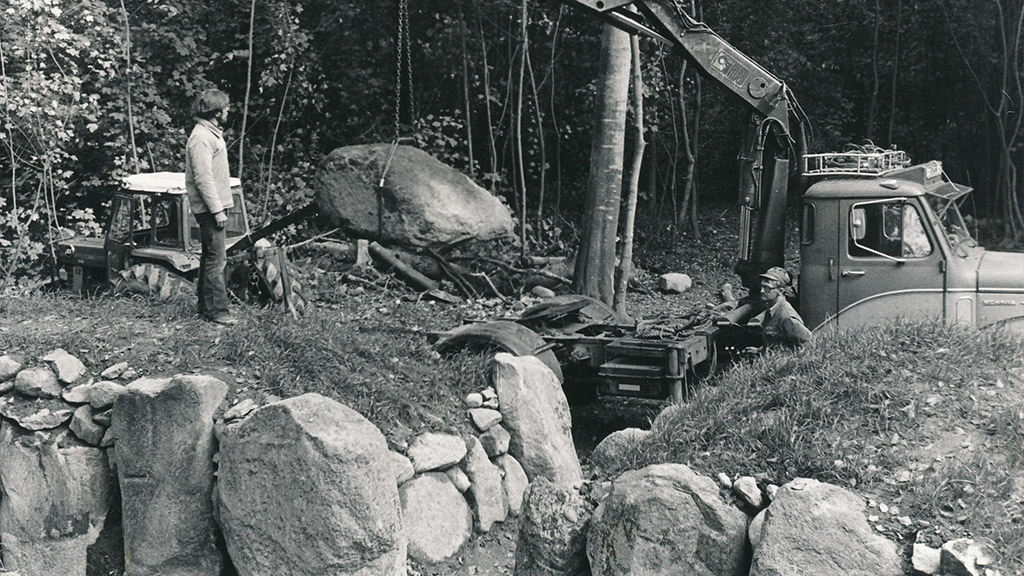
The double passage grave was investigated and restored again in 1978 and 1995. During the excavations, pottery was found that dated the use of the Tvede Forest passage grave back more than 1000 years!
The megalithic graves of the Neolithic period were architecturally advanced structures. In Denmark, the Neolithic Age lasted from around 900 - 1700 BC, when the Bronze Age began.
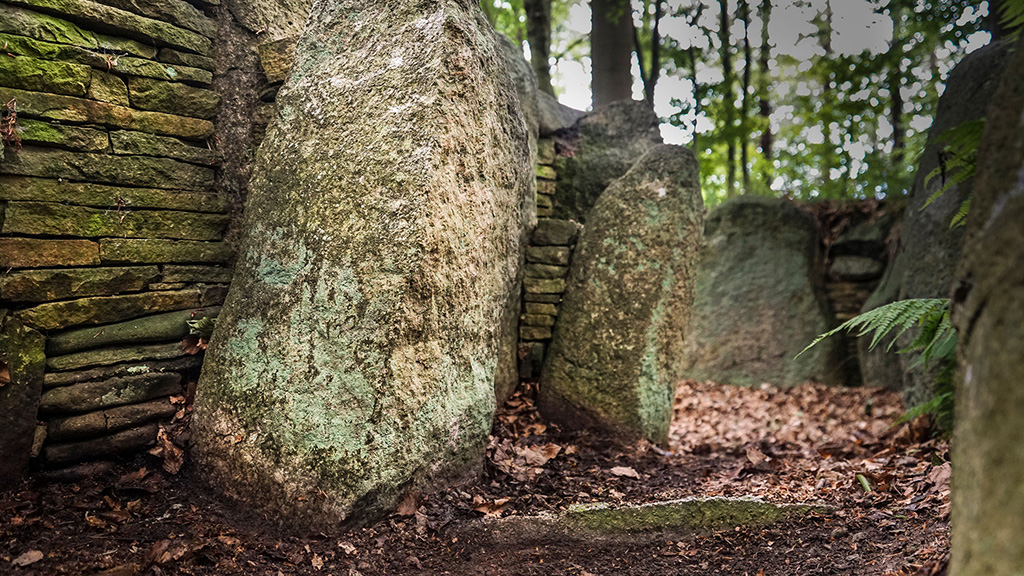
Advanced building techniques
Building a large stone grave required knowledge built up over generations. This is also why there are still intact, unopened megalithic graves to this day. The spaces between the walls of the graves, the large supporting stones, are filled with flat sandstone and sealed with either clay, a chalky mass or flakes of birch bark. The outside of the chamber is often covered with clay and layers of crushed flint, making it completely sealed and allowing it to remain dry for thousands of years - how many of today’s buildings can you say that about?
Walks from Tvede Forest
The 5.6 km red walk follows The Archipelago Trail across the fields north towards Tranekær. Botofte Mose is a nice place to rest.
The 7,4 km blue walk follows The Archipelago Trail south along the coast to Stengade Redoubt. Oehlenschlaeger’s Beech is 1 km extra.
The 1,8 km green walk around the forest with views of the sea.
Only The Archipelago Trail is signposted.
More Hidden Stories
Discover more hidden stories from Langeland at www.govisitlangeland.com/past
The project Langelands Hidden Stories is supported by the Danish Outdoor Council and developed by VisitLangeland and Langelands Museum.
